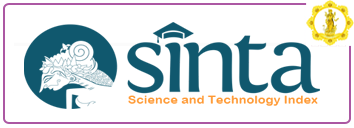Mitos Pasar Majelangu di Grenceng Desa Pemecutan Kaja
DOI:
https://doi.org/10.25078/ds.v5i1.4711Keywords:
Oral Literature, Myth, Pasar MajelanguAbstract
Oral literature is a literary work in the form of speech (oral expression). The function of oral literature is not only for artistic purposes but also includes education, such as moral and religious values within society. The author examines one of the Balinese oral literature prose stories, namely The Myth of Pasar Majelangu in Banjar Grenceng, Pemecutan Kaja Village. It tells of a market that opens precisely on the Day of Nyepi and this Pasar Majelangu is not an ordinary market, but a request from the deities residing in the temple. Interestingly, only one family is allowed to sell in this temple. Data collection involved interview and observation methods aided by recording and note-taking techniques, including idiomatic translation. Data analysis employed qualitative methods assisted by descriptive-analytical techniques. Presentation of the data analysis results used informal methods with deductive and inductive techniques. The structure that constructs the text of The Myth of Pasar Majelangu consists of incidents, plot development, characters and characterization, setting, theme, and messages, which are interconnected to form a cohesive literary work. There are also social and unifying functions. Local wisdom values still exist in the community and are upheld by those with strong beliefs. The enduring beliefs within the community are also due to the universal nature of the existing culture, which has become integral to their way of life.









